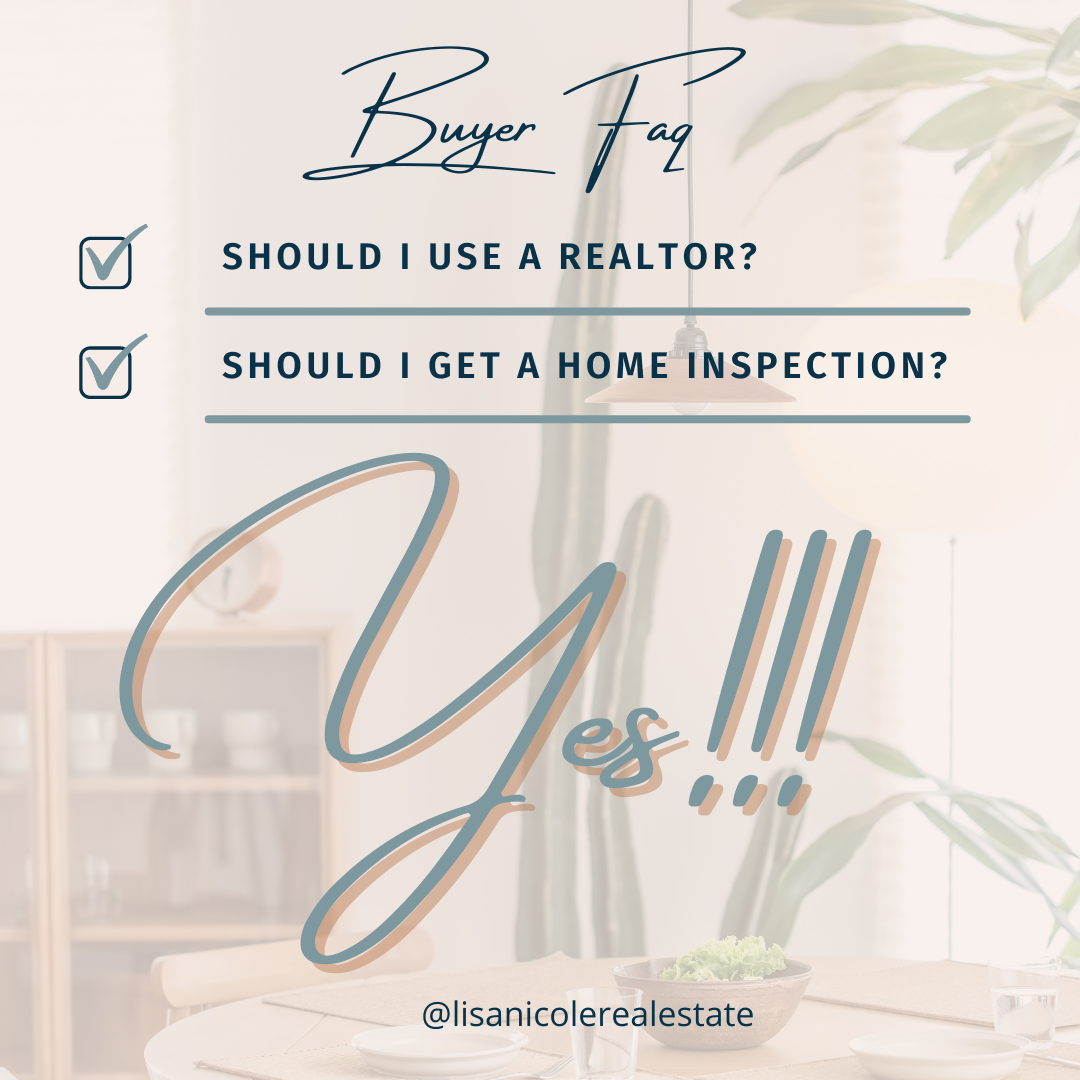
Whether it’s your first time buying a home or you’re a seasoned veteran, the market is always changing. Below, you’ll find buyer frequently asked questions and tips to help navigate them.
Q: What is the very first thing I should be doing before buying a home?
A: Get pre-approved. Many realtors won’t spend time showing you homes if you are not pre-approved. This allows you and your realtor to be clear on what your budget is. A mistake many home buyers make is diving into online realty sites to look at properties before knowing how much home they can buy
Q: Do I have to use a REALTOR®?
A: Simply put, yes. Not only are realtors properly trained, but they will also provide you resources for inspections, mortgage brokers and more. Realtors work with home sellers and buyers every single day; they know exactly what to look for and can prevent you from making a mistake.
Q: How much is a REALTOR® going to charge me?
A: Nothing. All fees are paid by the seller so, in a typical transaction, the commission is split by the seller’s agent and the buyer’s agent. As a buyer, you can have someone work for you at no cost to you.
Q: I already own a home and I need to sell that before buying another. Is that possible?
A: Yes. However, this can sometimes be tricky and your offer may not be as strong. It is possible to have “back-to-back” closings, but all conditions need to be completed in a timely fashion. You must have constant communication between all parties, and organization is a must-have.
Q: Should I get a home inspection?
A: This is always a YES!! Always, always, always, get a home inspection. This is the single “best card in your hand” that will protect you in the purchase of your new home. Even if you’re buying new construction, get a home inspection.
Q: Can I back out of a deal?
A: Once you have a signed contract where all the terms have been agreed upon by all parties, you are bound by a legal document. However, within that contract there are usually several conditions that need to be met first, like a home inspection. You can’t just walk away from the transaction without penalty, but there are safeguards that will protect you. For instance, if you get your inspection completed within the correct time frame in the contract and both parties do not agree on the repairs needed, you can back out of the contract without being penalized.
Q: How long does it take to close on a home?
A: It could vary depending on the situation. Typically, you should be able to close within 30 – 40 days if you have a conventional mortgage. If you are buying a foreclosure, figure on a couple of months.
Q: How much do I need for a down payment?
A: Your down payment depends on what kind of loan program that you use and what type of home your buyings.
- If the purchase price is less than $500,000, the minimum down payment is 5%.
- If the purchase price is between $500,000 and $999,999, the minimum down payment is 5% of the first $500,000, and 10% of any amount over $500,000.
- If the purchase price is $1,000,000 or more, the minimum down payment is 20%.
- If this is a rental home or secondary home, your down payment is 20%.
Q: What is included in the sale?
A: Anything that’s considered a fixture is typically included when purchasing a house — think cabinets, faucets, and window blinds. However, there could be items that you think are included with the home but actually aren’t. The listing description should spell out any exclusions that the seller is not including, but that’s not always the case.
Q: Were there any additions or major renovations?
A: In some cases, property records and listing descriptions don’t always match up. A home might be advertised as having four bedrooms, but one of those rooms may be a non-conforming addition that doesn’t follow local building codes. Find out what major repairs or renovations the seller has done since owning the home and request the original manufacturer warranties on any appliances or systems if those have been replaced. Knowing a home’s improvement history can help you better gauge its condition and understand the seller’s asking price.
Q: How old is the roof?
A: Let’s face it: roofs are necessary and expensive. If a home’s roof is at the end of its lifespan and you wind up having to replace it shortly after move-in, you’ll be shelling out thousands of dollars. Ouch. If the roof has existing damage, your lender may require that it be repaired in order to approve your loan. In other words, if the listing description doesn’t list the roof’s age, make sure to find out ASAP to avoid a costly headache later.
Q: How old are the appliances and major systems?
A: Again, understanding the anticipated lifespan of essential systems and appliances, such as the air conditioner, furnace, water heater, washer, dryer, and stove, can help you anticipate major repair or replacement expenses. If these items are already at the end of their lifespan or near it, ask the seller to purchase a home warranty, which can help cover the replacement costs in certain instances.
Hope that helps! Happy buying!


%20Ltd_Gold.png)
 Facebook
Facebook
 Twitter
Twitter
 Pinterest
Pinterest
 Copy Link
Copy Link

